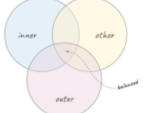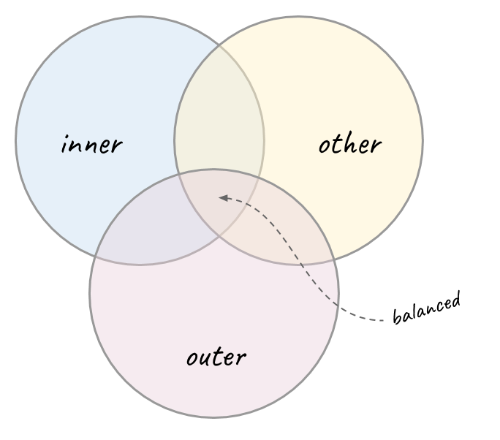7. Februar 2021
Thoughts on 'Focus' by Daniel Goleman
 One of these rare moments: I finished a book. Called “Focus: The Hidden Driver of Excellence”. Reading it to the end is an accomplishment by its own, as I had started this book years ago but then put aside for a reason I can no longer remember. Although it’s clear that, back then, my focus must have moved on to something else. Reflections after finishing a book on what is an essential topic in the information age.
One of these rare moments: I finished a book. Called “Focus: The Hidden Driver of Excellence”. Reading it to the end is an accomplishment by its own, as I had started this book years ago but then put aside for a reason I can no longer remember. Although it’s clear that, back then, my focus must have moved on to something else. Reflections after finishing a book on what is an essential topic in the information age.
Why did I read this book a second time, and this time to the end? I wanted to explicitly invest into learning more effectively, and remembered that I already had this book in my bookshelf. It has been long clear to me that focus is a key ingredient to tackling complex challenges, such as writing a thesis at university (where you would often find me in the library or simply at home), or starting a new project at work.
What’s the book about in a nutshell? Focus, obviously, is the recurrent theme. In particular, the keyword that weaves some of meandering chapters together is the triple focus. According to Daniel Goleman, the triple focus is the combination of (1) inner focus, (2) other focus and (3) outer focus. In summary, “inner focus” refers to self-awareness, “other focus” refers to concepts like empathy, and “outer focus” refers to the system one is part of. The author suggests that─for leadership at least─all three qualities need to be in balance.

How’s the book written? I place this book into the overlap between “self-help books” and “popular science books”. It may therefore not surprise you, that the author refers to various more or less well-known CEOs to provide some examples, and quotes researchers on subjects. While I believe examples to be invaluable, I prefer fewer examples in greater depth (for illustration), complemented with summaries about scientific research (for generalization). The book makes references to Daniel Goleman’s previous book “Emotional Intelligence” (which I have not read), Daniel Kahneman’s Thinking, Fast and Slow (which I have read, great book), and research from Dunedin, New Zealand which at some point I want to look at in a bit more depth.
I somewhat agree that with some other reviews of the book, claiming that the book itself is not staying long enough on a particular topic. Some cannot keep themselves from taking the opportunity for a pun, like Nicholas Carr puts it: ‘Focus’ lacks focus. I would not quite put it that way but to treat a concept like “focus” that is both fundamental in only ~250 pages without scratching just on the surface─is an ambitious undertaking.
In any case, “focus” is an interesting topic, particularly in the information age, where focus is required to sort what is relevant from what is not. One of the quotes in Daniel Goleman’s book that underlines the importance of focus is the following statement from Herbert Simon:
In an information-rich world, the wealth of information means a dearth of something else: a scarcity of whatever it is that information consumes. What information consumes is rather obvious: it consumes the attention of its recipients. Hence a wealth of information creates a poverty of attention. ─ Herbert Simon
It was for discovering this quote alone that I have no regrets making my way all to the end the book. Food for thought.